By: Dr. W. Scott West, Chief Medical Officer, Nashville NeuroCare Therapy
A recent article from MSN ranks Tennessee (tied with Arkansas) as the third most depressed state in America with an incredible 25% of the population actively diagnosed with depression. This is over 25% above the national median. Nearly a third of women in the state are diagnosed with depression, followed closely by almost a fifth of men. These numbers are staggering, and they don’t even account for those experiencing depression but have yet to be diagnosed.
Unsurprisingly, numbers have continued to spike in Tennessee throughout the pandemic. A 2020 CDC survey shows that Tennessee has jumped to the most depressed state since the onset of COVID-19. Of course, Tennessee is not the only state under pressure from the pandemic. According to survey results, rates of depression have nearly tripled nationwide, and it’s no wonder. Now, nearly two years into the pandemic, things have yet to return to the status quo.
As new COVID variants abound and days remain dark and cold, many of us are experiencing compounded feelings of exhaustion, sadness, loneliness, and anxiety. You and me— we need each other. We need community. And the continuing isolation, the risk calculation we do every time we leave the house, and the never-ending-ness of it all take a toll on our nervous systems and mental health. How could it not?
Whether actively or subconsciously, the unpredictability of the now and the future makes us feel unsafe. When our nervous system continually perceives it is under the threat of attack, the sympathetic nervous system activates and stays activated until the danger is resolved. Consider an animal running from a predator. Once the threat is gone, the stress cycle can complete itself. Finally safe, animals will shake, physically releasing the trauma and stress from their bodies so they can go about their lives in a safe, ventral vagal state.
However, when a threat persists for weeks, months, years at a time, our nervous systems don’t get the opportunity to complete the stress cycle and return to a regulated state. Instead, deterred from the hope of escape, our nervous systems might move into a dorsal vagal state, or freeze response. In animals, this looks like playing dead. Energy depletes, heart rate drops, and the brain stops sending nerve signals to the brain to protect you from pain. Also called collapse, this can look a lot like paralysis or catatonia. The body goes loose and limp. Norman B. Schmidt suggests that an animal finds that “tonic immobility may be the best option when the animal perceives little immediate chance of escaping or winning a fight” (NCBI).
While you and I might not be literally frozen— completely catatonic, limp, and collapsed— there is a state between “fight and flight” and “freeze” called “high activation freeze.” As Dr. Jennifer King from the Center of Trauma and Advocacy puts it, “High activation freeze may look like stillness from the outside, but internally a lot is happening. Muscles are tightened, the heart is racing, senses are heightened. There is a great amount of energy and tension in the body, yet there is nowhere for the energy to go. You feel revved up yet halted. Imagine a pinball machine, a shaken snow globe, or hitting the gas and the brake at the same time.”
In a high activation freeze state, your energy is contained and immobilized, but you haven’t gone loose and limp like you would in a low activation freeze. Harvard Health describes the effect of chronic stress on the body like “a motor that is idling too high for too long.” The result is akin to burnout, which you can read more about here. The symptoms of burnout closely mirror depression: fatigue, hopelessness, anhedonia.
If, more and more, you’re experiencing difficulty getting out of bed, completing simple tasks, and staying focused, you’re not alone. Luckily, we can help relieve these symptoms by regulating our nervous systems.
When we are experiencing a freeze response, one effective way to regulate is with movement. After all, a body cannot be frozen and mobile at the same time. Movement doesn’t have to be a full-blown workout— it could be as simple as rocking back and forth, shaking it out to your favorite song, or doing the dishes. No matter how small, simple and rhythmic movements are highly effective. Practice this kind of movement for a minute or so, then give your body the chance to settle. Repeat it a few times and see if you feel any difference.
Breathwork is another powerful tool to regulate your nervous system. Deep belly breaths can help “interrupt the fight or flight response” and exhaling for longer than you inhale helps activate the ventral vagal nerve. Both intentional breathing and movement are examples of self-regulation. Marlysa B. Sullivan posits that “self-regulation, a conscious ability to maintain stability of the system by managing or altering responses to threat or adversity, may reduce symptoms of diverse conditions such as irritable bowel syndrome, neurodegenerative conditions, chronic pain, depression and PTSD through the mitigation of allostatic load with an accompanying shift in autonomic state” (NCBI).
Of course, for many of us, the mental strain we’re experiencing requires further help beyond regulation techniques. If you believe you are depressed or know you are struggling to find effective treatment, TMS Therapy might give you the relief you seek. TMS, or Transcranial Magnetic Stimulation, is an innovative therapy that treats depression by using magnetic technology to stimulate areas of the brain that have low metabolic activity, or, in other words, aren’t working to their full potential.
We’ve learned that the brains of people with depression and those without depression look and function differently. Most notably, centers that regulate mood aren’t as active in a depressed brain. TMS Therapy helps encourage your brain to heal itself by building and strengthening the neural networks that help control your mood and behavior. This offers real, lasting relief from depression.
TMS Therapy is our preferred way to work with your brain to treat your depression at Nashville NeuroCare Therapy. While “stimulating the brain with magnets” might sound a little intimidating, TMS Therapy is not to be confused with electroconvulsive therapy ( ECT or “shock therapy”). TMS Therapy does NOT apply electricity to your brain, and it does not induce seizures. TMS Therapy is completely drug-free, comfortable and safe, perfectly natural, and offers no adverse side effects commonly associated with medication. Though it’s a lesser-known therapy, most private and public health insurances cover TMS Therapy, and the American Psychiatric Association even recommends TMS Therapy as an alternative to antidepressants if your medications aren’t working for you.
If you aren’t finding relief from your depression through talk therapy or medication alone, talk to your doctor about TMS Therapy. Treatment for depression is not one size fits all, and there is hope for you. If you’d like to learn more about TMS Therapy and how it could help you or somebody you love, feel free to request a consultation with our office. We’d love to see if TMS Therapy is a good fit for your path to healing.
About the Author: Dr. W. Scott West
Nationally recognized, board-certified psychiatrist, Dr. W. Scott West, blazed the trail for TMS therapy in Tennessee as the first physician to offer this advanced technology in 2010. With 30+ years experience in clinical depression, Dr. West leads the Nashville NeuroCare team.
- Board Certified Psychiatrist
- Specialty: Certified TMS Psychiatrist since 2010
- Diplomate: The American Board of Psychiatry and Neurology
- Distinguished Fellow: American Psychiatric Association
- Residency: Vanderbilt University, Hospital Department of Psychiatry
- Medical School: University of Tennessee, Knoxville, Center for the Health Sciences
- Hospital Affiliations: Vanderbilt University Hospital, St. Thomas Hospital


